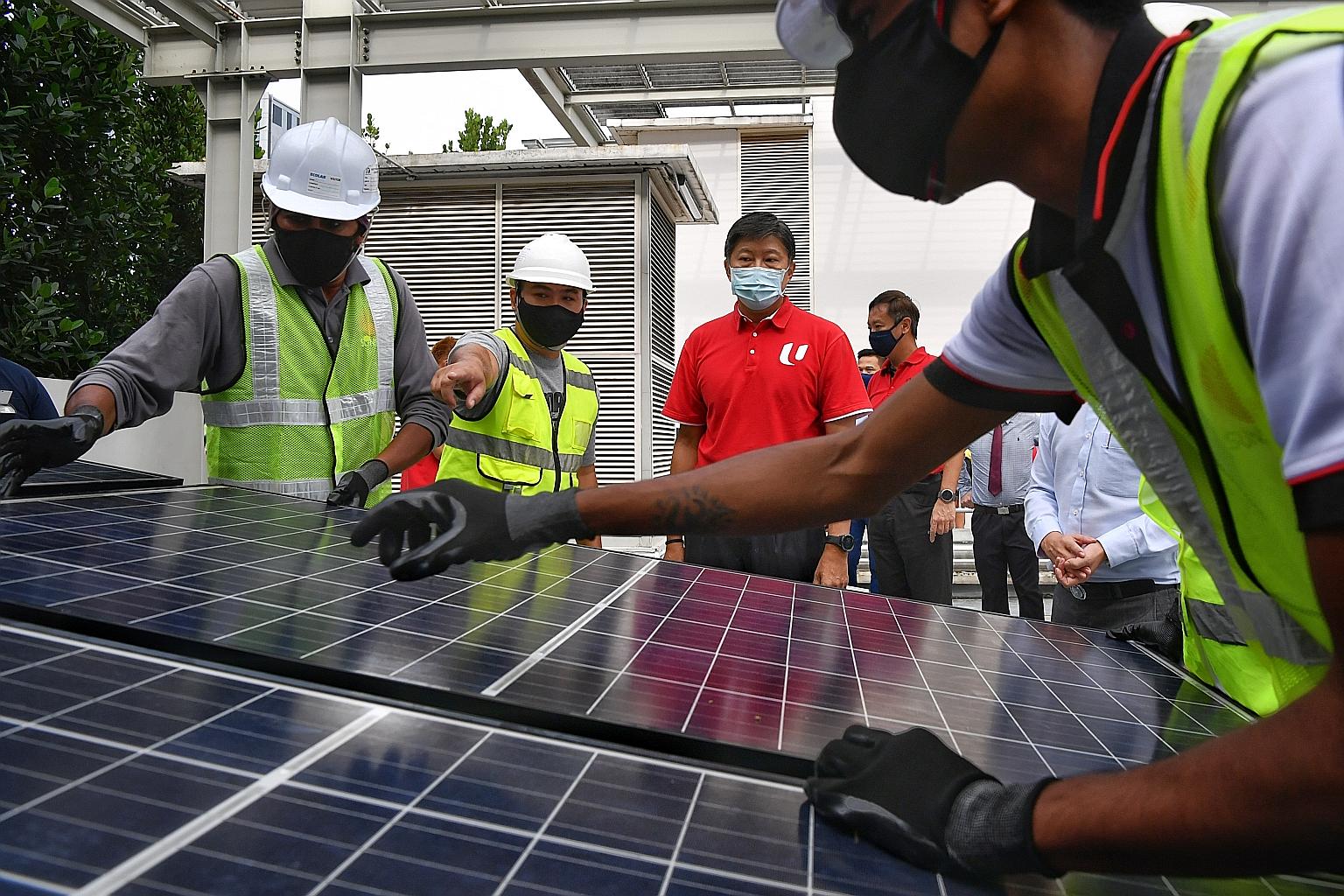Plans to build S'poreans' skills for solar sector
Sign up now: Get ST's newsletters delivered to your inbox

NTUC secretary-general Ng Chee Meng observing workers install a solar panel at the Singapore Sustainability Academy on Dec 17, 2020.
ST PHOTO: CHONG JUN LIANG
Liew Ai Xin
Follow topic:
A solar industry recruitment drive yesterday saw more than 200 residents sign up for jobs, with agencies here announcing plans to build skills and experience for Singaporeans to manage solar projects in their entire cycle, from installation to maintenance.
This is to meet the Republic's growing renewable energy needs as it strives to achieve 2 gigawatt-peak by 2030, almost five times the current solar usage.
Between 3,000 and 4,000 jobs will be created in the solar industry in the next two to three years, said Mr Gilbert Tan, chief executive of the labour movement's Employment and Employability Institute (e2i) and assistant director-general of the National Trades Union Congress (NTUC).
To build up the skilled workforce for the industry, e2i and the Sustainable Energy Association of Singapore (Seas) signed two memorandums of understanding (MOUs) with nine solar companies and two training providers. NTUC secretary-general Ng Chee Meng witnessed the signing.
The agreements are aimed at tackling manpower challenges and building up skills, training and job prospects for the solar industry.
The MOUs will also see a career plan developed for solar technologists, to ensure well-defined progression in skills, job roles, wages and productivity for the industry.
Of the 430 available jobs at the recruitment drive, held at the Singapore Sustainability Academy in City Square Mall, 405 vacancies were for solar technologists.
A solar technologist, who would have a diploma, Nitec or Higher Nitec qualification, will be involved in installing and maintaining solar photovoltaic (PV) systems.
With a diploma or degree with relevant experience, a senior solar technologist will progress to designing PV systems and performing data analysis.
A principal solar technologist will have the responsibility of assessing the feasibility of PV installations, as well as planning, executing and managing projects.
A person in this role would have at least eight years of relevant experience, regardless of whether he has a diploma, degree or higher Nitec qualifications.
Mr Frank Phuan, chief executive and co-founder of local solar energy firm Sunseap Group, a signatory of the MOU, said the solar industry has been heavily reliant on foreign workers under the construction sector to install solar panels.
However, that means their job is transient in nature, said Mr Phuan, who is also vice-chairman of Seas.
"They (the workers) will leave somehow, some day. So there's hardly any career development we can talk about," he added.
Mr Steven Lau was among those who signed up for a job at the recruitment drive.
The 33-year old, who works part-time in a logistics company, has a degree in electrical and electronics engineering from Nanyang Technological University.
He said the solar industry was what he pictured himself being involved in when he graduated four years ago.
"I hope to secure a role (as a solar technologist) by the end of the year, although the timeline is tight."

